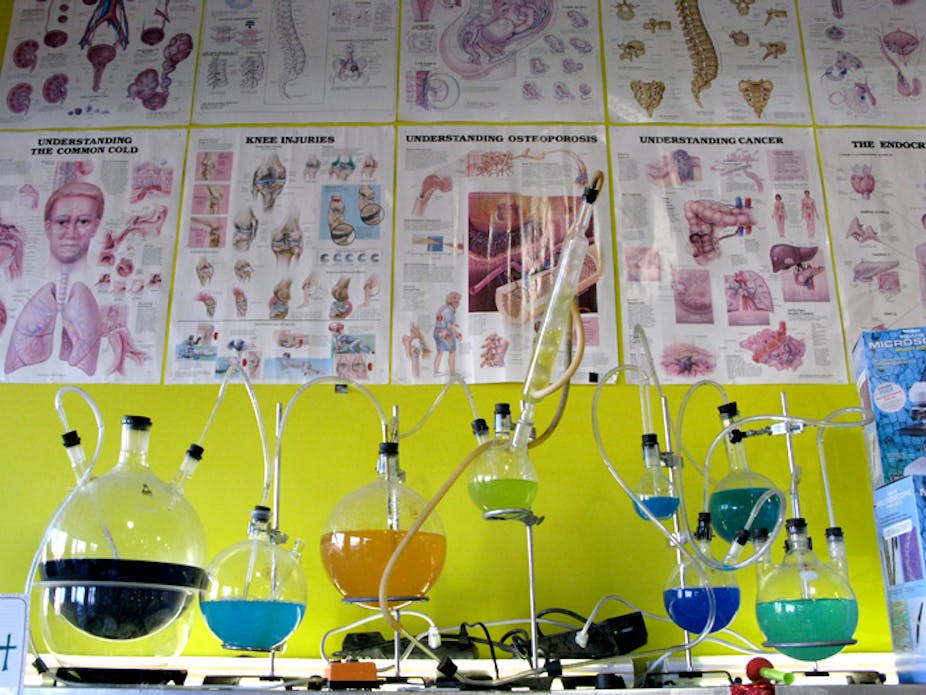Clinical trials of an experimental cancer drug being undertaken by the University of New South Wales were suspended this week, after questions about the accuracy of some preliminary results were made public.
Allegations of inaccuracies in the reporting of research results have also recently been raised at Queensland University of Technology.
In both instances, scientific publications have been retracted. And, in one, the institution potentially faces repaying a sizeable research grant from the National Health and Medical Research Council (NHMRC).
Researchers at both institutions have stated that any errors were inadvertent, and investigations are ongoing.
But delays in disclosure and investigation of such cases raise questions about the effectiveness of medical research governance, and the independence of the existing regulatory system within universities and research institutes.
The importance of integrity
The importance of adequate regulation for maintaining the integrity of medical research cannot be overstated.
The guidelines regulating medical research in Australia are derived from information gathered during the Nuremberg trials, on the conduct of Nazi doctors and their role in experimentation and medical research during the Second World War.
The profound disregard for the rights, dignity and very humanity of the participants experimented on by doctors during this period was so great that it was internationally acknowledged that not only should the Universal Declaration of Human Rights be established, but that there should also be a code of conduct specifically regulating the way medical research is undertaken.
This document was referred to as the Nuremberg Code, and it evolved into the 1964 Helsinki Declaration – an internationally accepted document attributable to the World Medical Association.
The human rights principles espoused in the document (self-determination and not subjection, without free consent, to medical or scientific experimentation) intersect with principles of law (bodily inviolability) and bioethics, including autonomy (the right to make one’s own choices) and non-maleficence (to do no harm).
The risks of misconduct
For researchers, the consequences of failing to comply with the guidelines include loss of reputation and opportunities for research funding. More broadly, research misconduct can affect public support, and undermine confidence in the integrity of whole fields of study.
An example of this is the rise of the vaccination “debate”. Those opposed to the science of vaccination rely, in part, on a now-retracted paper by Andrew Wakefield, who has been de-registered.
Wakefield falsely linked the measles-mumps-rubella (MMR) vaccine with autism and caused enormous harm to the credibility and implementation of this safe and highly-effective public health measure.
Ethically, researchers have an obligation to avoid exposing study participants to risk, or using them in flawed research. Clinical trials based on erroneous data violate participants’ trust in researchers.
Worse still is the violation of trust of participants who volunteer for trials based on erroneous preliminary data – the hope offered to them is both false and cruel, even if “inadvertent”.
Creating a culture of disclosure
Clinical medicine invests heavily in the prevention of adverse events and harm to patients. It promotes a culture of disclosure.
Prevention of, and open disclosure about, adverse events in clinical research, and the integrity of data should be no less important. Openness is vital to protecting integrity, and the rights and welfare of participants and researchers.
Australian medical research needs an independent regulator authorised to investigate complaints raised by whistle-blowers and others.
The NHMRC and Australian Research Council, as the bodies responsible for administering public funding for medical research in Australia, are not appropriate regulators for this task. Nor are universities and research institutions sufficiently independent to investigate staff or commercial partners and offshoots.
And peer-review is also not fail-safe as flawed science has been published.
Public perceptions that institutions may hide behind claims of commercial confidentiality or assurances that internal reviews have been fair, thorough and effective to avoid embarrassment and inconvenience do nothing to promote confidence in research integrity.
The University of New South Wales should be commended for not doing the above this time.
Improving Australia’s research integrity would require two key changes: legal moves to establish an independent regulator; and cultural change that rewards early- and public- self-disclosure of errors, and punishment of intentional or reckless misconduct after active independent investigation of allegations.
Without such changes, public confidence in medical research – and perceptions of the value of funding it from the public purse – remain vulnerable to attacks on its integrity.

